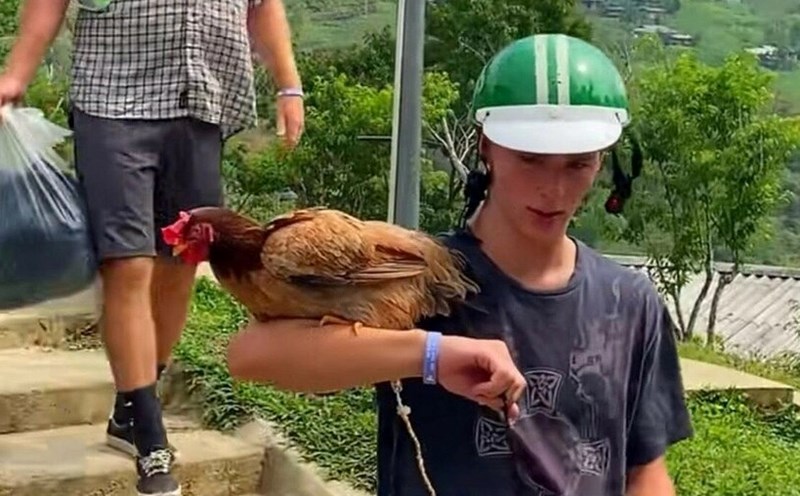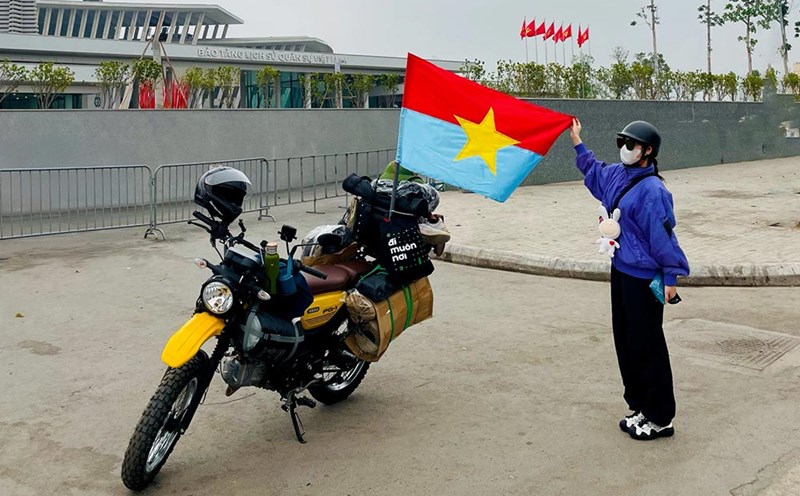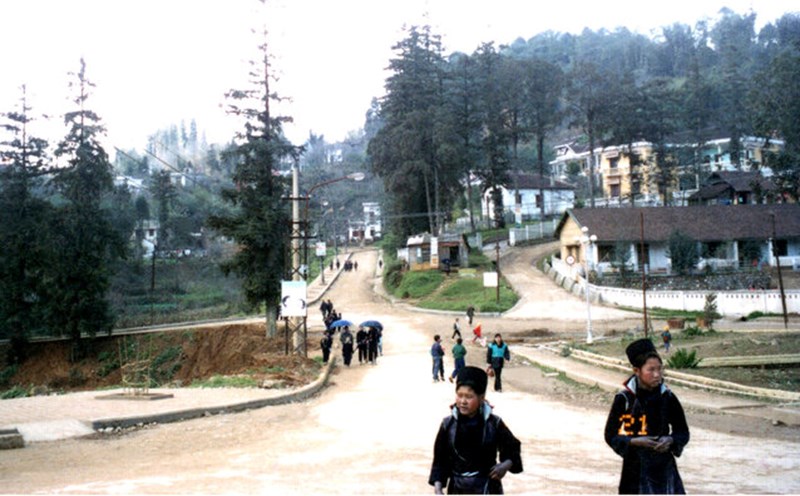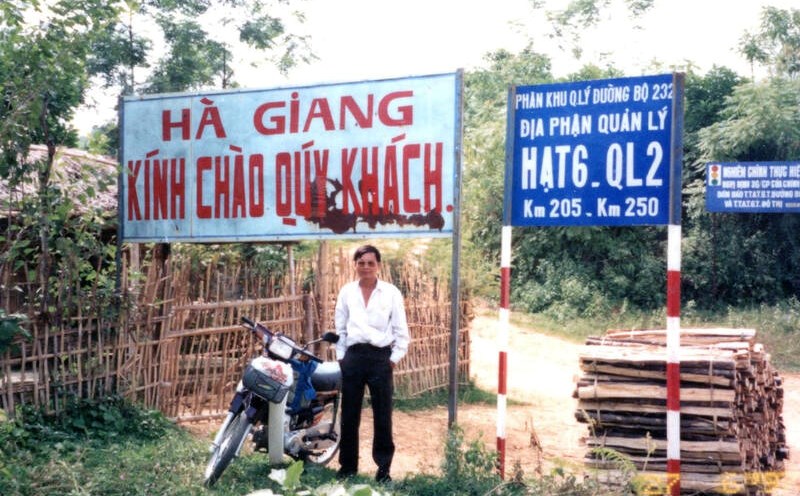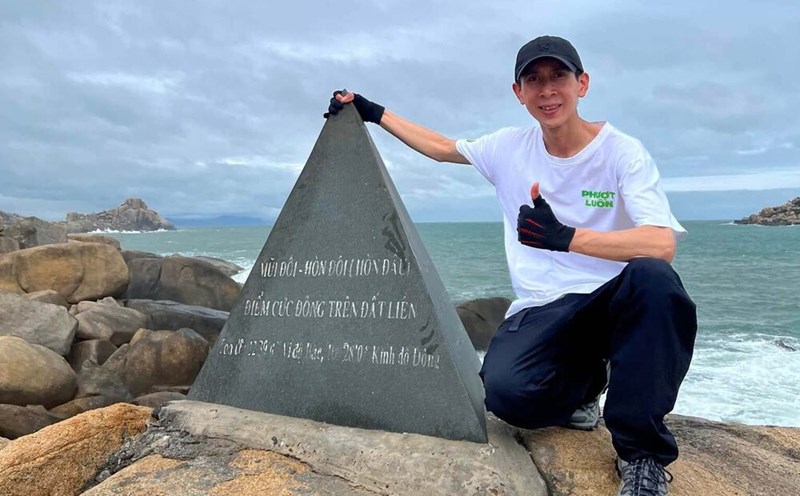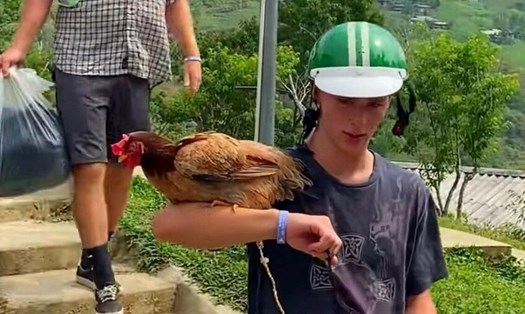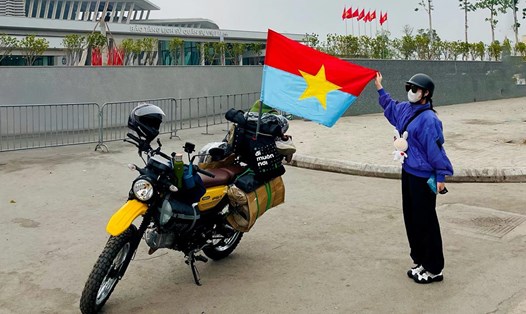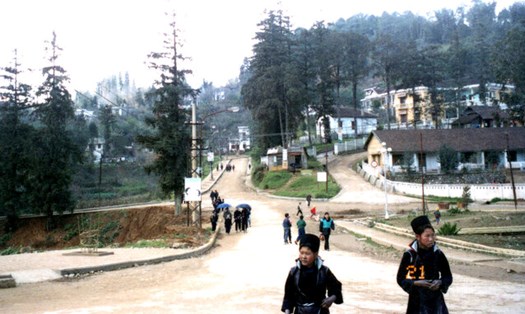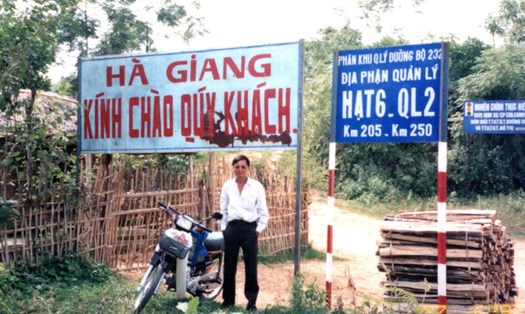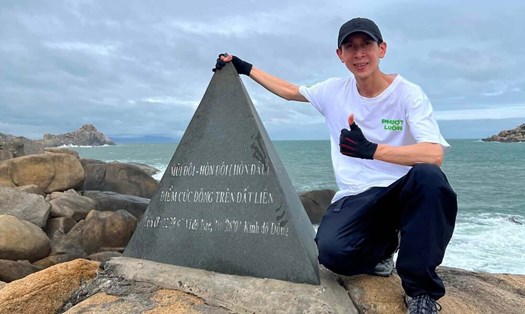Not all cars can "climate"
The mountainside is not a place for pure speed testing. Sportbikes such as the R1 or ZX-10R, originally designed for the track and racetrack, will have real difficulties in sharp turns, concave or steep slopes.
That is the reason why mid-range Championship, Touring or Cruiser lines such as BMW GS, Harley- Davidson Softail, Honda Africa Twin, Triumph Tiger... are often chosen by car enthusiasts for the Northwest, Dong Truong Son or Ha Giang - Meo Vac routes.
These cars stand out thanks to their strong cable-stayed frame, flexible suspension and stable traction in low rpm - important factors for climbing mountain passes, crab climbing, and landing safely.
Technical inspection - a prerequisite
Before each journey, never take technical inspection lightly.
A car, no matter how expensive it is, with weak brakes, worn tires or a lack of power, can still turn a trip into a nightmare in the back of the pass.
The items that need to be carefully checked include: Tires (both front and rear), tires (lock pressure, wear), chains - viscosity - water cages - lights - GPS - turn signals... If traveling long distances, wind filters and bugies should also be cleaned or replaced.
For Harley motorbikes or Sport Touring motorbikes (a motorbike line specifically for long-distance trips, beautiful road surfaces) weighing over 350kg, it is necessary to check the trunk, stand-up legs, and trunk of the motorbike - to avoid colliding with the edge of the mountain road.
Carrying furniture: Compact, sufficient, and safe
A mountain biker literally dozens the room behind him. The principle of "less but quality" is always a priority.
Equip yourself with a fullface or Adventure helmet that meets DOT standards. Full protective equipment (knee, elbow, back, shoulders), anti-slip gloves, specialized moto shoes.
Waterproof Balo or hip box containing: light clothes, raincoats, water bottles, flashlights, simple vehicle repair tools, backup chargers, personal healthcare.
The phone has a offline map or its own GPS guidance device. Some mountainous areas such as Muong Lat, A Pa Chai, and Pu Luong often lose mobile waves.
Pass driving skills: Not just a thrill and a win
Many accidents have occurred because drivers are subjective about the pass. The way to handle large-displacement motorbikes on the pass is completely different when traveling on the school road.
Phosphering the pass is not allowed to cut cones or leave "mo", but must use low numbers to slow down. When cranking hard, you must slow down first, keep the scooter steady when holding the crab, avoid squeezing the ball in the middle of the crab.
Always keep a distance from the vehicle in advance, especially when traveling in a group. Absolutely do not run at night if you are not familiar with the route or do not have experienced tour guides.
Preparing documents and legal safety
In addition to good skills and vehicles, it is indispensable to have the following documents: A2 driving certificate, vehicle registration certificate, compulsory civil insurance, ID card/CCCD. Pre-pre-name photos to prevent loss.
For groups traveling far away, they can plan a detailed schedule to send to relatives or local authorities when needed for support.
Mountain travel on a large displacement motorbike is not for floating farmers. It is a journey of will, discipline and preparation. Not everyone can do it - but for those who are passionate enough, the sound of the forest and mountains, the breeze breezing through the steering wheel, and the challenging curves will be unforgettable memories.
Some ideal mountain backpacking routes
O Quy Ho Pass (Lao Cai - Lai Chau): long, with thick fog, but is a symbol of the backpackers in the North.
Ma Pi Leng - Dong Van (Ha Giang): small, rugged road, spectacular scenery.
Truong Son Dong Street ( Kon Tum - Quang Nam): few vehicles, wild and beautiful, ideal for Adventure vehicles.
Khau Pha Pass (Yen Bai), Pha Din Pass (Son La): many consecutive Z-shaped turns, the right steering wheel is very sturdy.

